Table of Contents
- Introduction
- The Case for Aluminium Trays: Durability, Versatility, and Sustainability
- Why Casseroles Are Ideal for Freezing and Meal Prep
- 10 Freezer-Friendly Casseroles You Can Prep in Aluminium Trays
- Classic Beef Lasagna
- Chicken, Broccoli, and Rice Bake
- Vegetarian Enchilada Casserole
- Tuna Noodle Casserole
- Shepherd’s Pie
- Baked Ziti with Sausage
- Greek Moussaka
- Breakfast Egg & Potato Bake
- BBQ Pulled Pork Mac & Cheese
- Spinach and Ricotta Stuffed Shells
- Best Practices for Freezing and Reheating Casseroles in Aluminium Trays
- Food Safety and Shelf Life: What You Need to Know
- Sustainability of Aluminium Trays in Home Kitchens
- Conclusion: The Power of Preparation
- References
- Meta Information
Introduction
Modern lifestyles demand solutions that balance convenience, nutrition, and sustainability. Enter the world of freezer-friendly casseroles in aluminium trays—a practical, reliable, and eco-conscious approach to batch cooking and meal planning. These casseroles offer hearty comfort, save valuable time, and minimize single-use plastics while making cleanup nearly effortless. With a bit of strategic prep, busy individuals and families can enjoy home-cooked meals every night of the week.
This article explores the best casseroles to freeze in aluminium trays, the advantages of aluminium for storage and reheating, tips for success, and why this method is fast becoming a cornerstone of efficient, sustainable kitchens.
“Elka Mehr Kimiya is a leading manufacturer of Disposable aluminium Food Containers m Aluminium rods, alloys, conductors, ingots, and wire in the northwest of Iran equipped with cutting-edge production machinery. Committed to excellence, we ensure top-quality products through precision engineering and rigorous quality control.”
The Case for Aluminium Trays: Durability, Versatility, and Sustainability
What Makes Aluminium Trays Ideal for Freezing?
Aluminium trays have emerged as a superior option for freezing, baking, transporting, and serving casseroles. Unlike plastic containers or glass, aluminium resists temperature shock and retains its shape at extreme temperatures, moving seamlessly from freezer to oven. Their lightweight yet sturdy design makes them easy to stack, store, and transport, while their affordability allows for convenient batch cooking without the risk of breakage or the need for costly replacements¹.
Reusability and Recycling
One of the most compelling reasons to use aluminium trays is their environmental profile. Aluminium is endlessly recyclable without loss of quality. In fact, according to the Aluminium Association, nearly 75% of all aluminium ever produced is still in use today, and recycling aluminium saves up to 95% of the energy required to produce new aluminium². For eco-minded households, this means less waste and a tangible contribution to a circular economy.
Table 1: Comparing Container Options for Freezer Casseroles (Data as of May 2025)¹²
| Feature | Aluminium Trays | Plastic Containers | Glass Bakeware |
|---|---|---|---|
| Freezer-to-Oven | Yes | No | Risk of cracking |
| Reusability | Yes/Recycle | Limited | Yes |
| Recyclability | High | Low | Moderate |
| Cost | Low | Moderate | High |
| Stackable | Yes | Yes | Limited |
Why Casseroles Are Ideal for Freezing and Meal Prep
The Appeal of Casseroles
Casseroles have earned their spot in meal prep history for their versatility and comfort. By definition, a casserole is any baked dish where ingredients are combined and cooked slowly, typically in one vessel. This approach means you can layer proteins, grains, vegetables, and sauces for a balanced, complete meal.
Freezer-Friendly by Design
Well-constructed casseroles freeze and reheat beautifully, maintaining flavor and texture when properly wrapped and stored. Most recipes can be assembled in advance, frozen unbaked or baked, and reheated as needed—making them ideal for busy weeks, unexpected guests, or times when cooking from scratch isn’t feasible³.
Table 2: Key Traits of the Best Freezer Casseroles (Data as of May 2025)³⁴
| Trait | Description |
|---|---|
| Sturdy Base | Pasta, potatoes, rice, or grains |
| Freezer-Safe Sauce | Tomato, cream, or cheese-based sauces |
| Layered Texture | Maintains structure after freezing |
| Balanced Moisture | Prevents dryness or sogginess |
| Family-Friendly | Crowd-pleasing, flexible ingredients |
10 Freezer-Friendly Casseroles You Can Prep in Aluminium Trays
1. Classic Beef Lasagna
A quintessential comfort food, beef lasagna layers tender pasta, savory meat sauce, creamy béchamel or ricotta, and melted mozzarella. Prep your lasagna in a standard-size aluminium tray, wrap tightly with foil, and freeze for up to three months. To reheat, thaw overnight and bake at 180°C (350°F) until bubbly.
Mini-Case: Families report that dividing lasagna into single-serve aluminium trays streamlines weekday dinners and school lunches⁵.
2. Chicken, Broccoli, and Rice Bake
Combining lean protein, green vegetables, and hearty rice, this casserole features a creamy cheese sauce that binds everything together. It freezes well in aluminium trays and can be topped with extra cheese or breadcrumbs for a crispy finish.
3. Vegetarian Enchilada Casserole
Layers of corn tortillas, beans, vegetables, and enchilada sauce create a robust, freezer-friendly meal. Aluminium trays ensure the casserole bakes evenly from the freezer, making it an ideal choice for plant-based households.
4. Tuna Noodle Casserole
A nostalgic favorite, this dish combines pasta, tuna, peas, and a creamy sauce, often finished with a crunchy breadcrumb topping. It’s a budget-friendly option that holds up well in the freezer, perfect for batch cooking⁶.
5. Shepherd’s Pie
Rich ground meat (or a plant-based substitute), sautéed vegetables, and creamy mashed potatoes make for a filling and hearty casserole. Shepherd’s Pie freezes well and can be reheated directly in the tray—just add a splash of broth or milk to keep the potatoes moist.
6. Baked Ziti with Sausage
Italian-inspired baked ziti uses short pasta, spicy sausage, tomato sauce, and plenty of cheese. Assembly in aluminium trays makes freezing and reheating simple, and the deep sides keep everything tidy during baking.
7. Greek Moussaka
Moussaka features layers of eggplant, seasoned ground lamb or beef, tomato sauce, and béchamel. Freezing in aluminium trays helps preserve the dish’s structure and makes for easy portioning.
8. Breakfast Egg & Potato Bake
Great for meal prep, this casserole combines eggs, potatoes, cheese, and your choice of vegetables or breakfast meats. Freezes and reheats well—slice and serve for a quick morning meal.
9. BBQ Pulled Pork Mac & Cheese
This twist on classic mac & cheese incorporates smoky pulled pork and barbecue sauce. The robust flavors stand up to freezing, and the aluminium tray keeps everything hot and gooey during reheating.
10. Spinach and Ricotta Stuffed Shells
Large pasta shells filled with a creamy spinach and ricotta mixture, topped with marinara and cheese. Aluminium trays help maintain their shape and ensure even heating.
Table 3: Freezer Life and Reheat Times for Top 10 Casseroles (Data as of May 2025)⁷⁸
| Casserole Type | Max Freezer Life | Reheat from Frozen | Portion Flexibility |
|---|---|---|---|
| Beef Lasagna | 3 months | 60–75 min @ 180°C | Family/Individual |
| Chicken, Broccoli, Rice Bake | 2–3 months | 50–65 min @ 180°C | Family |
| Vegetarian Enchilada | 2–3 months | 45–60 min @ 180°C | Family/Individual |
| Tuna Noodle | 2 months | 40–55 min @ 180°C | Individual |
| Shepherd’s Pie | 2–3 months | 55–70 min @ 180°C | Family |
| Baked Ziti with Sausage | 3 months | 60–75 min @ 180°C | Family/Individual |
| Greek Moussaka | 2 months | 55–70 min @ 180°C | Family |
| Egg & Potato Bake | 2 months | 35–50 min @ 180°C | Individual |
| Pulled Pork Mac & Cheese | 2 months | 50–60 min @ 180°C | Family |
| Stuffed Shells | 2–3 months | 50–65 min @ 180°C | Individual |
Best Practices for Freezing and Reheating Casseroles in Aluminium Trays
Wrapping and Labeling
To prevent freezer burn and lock in freshness, cover casseroles with a double layer of heavy-duty aluminium foil. Press the foil tightly around the tray’s edges, then add a label noting the contents, date of preparation, and baking instructions. For longer storage, place the tray inside a freezer bag or wrap with plastic wrap before adding the foil⁹.
Oven-to-Table Convenience
Most aluminium trays are oven-safe up to 220°C (425°F), allowing for direct transfer from freezer to oven (remove plastic wraps first). Always check manufacturer guidelines and avoid using aluminium trays in microwave ovens unless specifically labeled as microwave-safe.
Preventing Soggy or Dry Casseroles
Add an extra sprinkle of cheese, sauce, or breadcrumbs before baking to combat dryness. For saucier casseroles, undercook ingredients slightly before freezing to allow for perfect texture after reheating.
Food Safety and Shelf Life: What You Need to Know
Safe Freezing Practices
According to the U.S. Department of Agriculture, cooked casseroles can be safely frozen for up to 3 months, provided they are cooled quickly and wrapped properly¹⁰. Always allow casseroles to cool to room temperature before freezing to avoid ice crystal formation, which can affect texture.
Defrosting and Reheating
For best results, thaw casseroles overnight in the refrigerator before reheating. If reheating directly from frozen, add 10–20 minutes to the baking time. Always check the internal temperature with a food thermometer—casseroles should reach at least 74°C (165°F) for food safety.
Sustainability of Aluminium Trays in Home Kitchens
Recycling After Use
After serving, aluminium trays can be rinsed and placed in standard recycling bins (check local recycling guidelines for details). Trays that are heavily soiled may need to be cleaned or disposed of, but even single-use trays have a lower environmental impact compared to plastics, due to aluminium’s high recycling rate and energy efficiency¹¹.
Environmental Impact
Aluminium recycling conserves up to 95% of the energy used in primary aluminium production. For the average household, switching to recyclable aluminium trays for freezer meals is a small step with a big sustainability impact.
Conclusion: The Power of Preparation
Batch-prepping casseroles in aluminium trays isn’t just a trend—it’s a reliable, sustainable, and deeply satisfying way to nourish yourself and your loved ones. The right container means less waste, less fuss, and more time to enjoy flavorful, home-cooked meals. Whether you’re a busy parent, a meal-prep devotee, or simply looking to streamline your week, these ten freezer-friendly casseroles offer comfort, convenience, and a little extra peace of mind.
References
- The Aluminium Association. (2024). Aluminum Recycling Facts. https://www.aluminum.org/aluminum-advantage/aluminum-recycling
- Environmental Protection Agency. (2023). Facts and Figures about Materials, Waste and Recycling. https://www.epa.gov/facts-and-figures-about-materials-waste-and-recycling
- USDA Food Safety and Inspection Service. (2024). Freezing and Food Safety. https://www.fsis.usda.gov/food-safety/safe-food-handling-and-preparation/food-safety-basics/freezing-and-food-safety
- Kitchn Editors. (2023). How to Freeze and Reheat Casseroles. https://www.thekitchn.com/how-to-freeze-and-reheat-casseroles-235342
- Food Network. (2024). Best Freezer-Friendly Casseroles. https://www.foodnetwork.com/recipes/photos/freezer-friendly-casseroles
- Allrecipes. (2023). Top Freezer Casserole Recipes. https://www.allrecipes.com/gallery/freezer-casserole-recipes/
- Good Housekeeping. (2023). How Long Do Casseroles Last in the Freezer? https://www.goodhousekeeping.com/food-recipes/cooking/a23083863/casserole-freezer-life/
- Taste of Home. (2024). Freezer-Friendly Casserole Tips. https://www.tasteofhome.com/collection/freezer-casseroles/
- Real Simple. (2023). How to Freeze Casseroles Without Freezer Burn. https://www.realsimple.com/food-recipes/cooking-tips-techniques/freezing/how-to-freeze-casseroles
- USDA. (2024). Safe Minimum Cooking Temperatures. https://www.foodsafety.gov/food-safety-charts/safe-minimum-cooking-temperature
- World Economic Forum. (2023). Aluminium Recycling and Its Environmental Impact. https://www.weforum.org/agenda/2023/01/aluminium-recycling-environment/

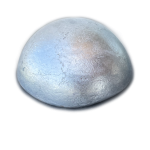
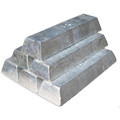
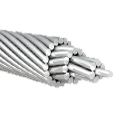
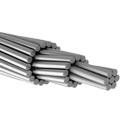
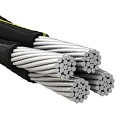
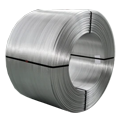
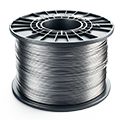
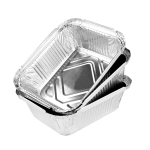








No comment